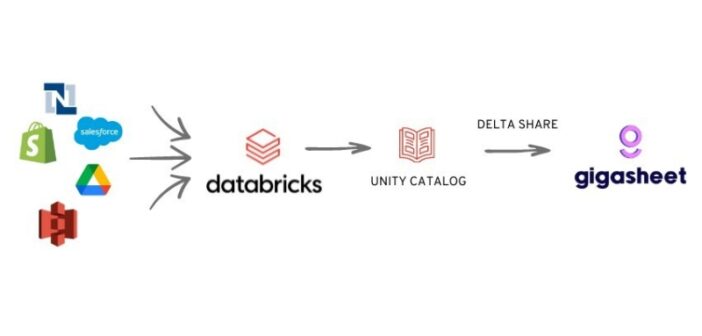Gigasheet has introduced a new enterprise solution for organizations using Databricks, allowing business users to explore and analyze data through a scalable, spreadsheet-like interface. Trusted by over 100,000 users, Gigasheet’s self-service platform now enables IT and data teams to centrally manage big data analysis, integrating seamlessly with Databricks.
Businesses accumulate vast amounts of data in their Databricks lakehouses, promising enhanced decision-making, AI model development, and groundbreaking insights. However, business units often lack technical skills, so the data access remains unavailable to the teams that need it most.
Business users seek the ability to independently explore data, pose ad-hoc questions, and uncover insights beyond pre-set reports. Since few business users are SQL, Python, or database experts, engineering is required to make data available. Thus, lines of businesses find themselves marooned on an island of static and outdated spreadsheets, constrained to dashboards without row-level details, and stuck making endless data requests.
Simultaneously, technology leaders are challenged to provide self-service analytics to business users, while trying to maintain data security and avoiding overwhelming engineering resources. This ongoing struggle creates a frustrating and inefficient cycle for both business users and IT data teams.
Gigasheet for Databricks offers a practical, centrally managed solution to data democratization challenges faced by modern businesses. Gigasheet combines the power of big data with the simplicity of a spreadsheet, empowering business users to explore and analyze data independently. This solution supports efficient collaboration and scales to meet the demands of large datasets, all while ensuring data security and governance.
“Gigasheet has become an invaluable tool in our data migration process. Its intuitive and seamless design allowed us to quickly migrate end users to a true data platform and perform their business function with data at scale,” says Casey Niemuth, CEO of PODO, a consulting firm that provides Databricks services.
Niemuth says IT and data teams easily manage Gigasheet without adding additional layers of data access management. Gigasheet supports both Databricks Personal Access Token authentication and Delta Shares that are used in combination with Databricks Unity Catalog governance controls to ensure that data access and security remain intact.
Gigasheet for Databricks does not require setup or tuning of backend Databricks infrastructure. Business users work seamlessly in the Gigasheet environment, ensuring high performance and data integrity while minimizing additional compute costs. Data from flat files, or CRMs like Salesforce and HubSpot, can be combined with Databricks data within Gigasheet, supporting up to one billion rows in a single sheet. Plus, data transformations and sheet preparation can be automated using the API.
“There’s a lot of buzz about democratizing data access but think about how many people are experts at SQL or BI tools. Now think about how many use spreadsheets. Spreadsheets are the common language everyone speaks,” says Jason Hines, CEO and Co-founder of Gigasheet.
Hines says organizations can streamline data access and management, reduce the dependency on data engineering resources, and empower users to derive valuable insights from their data.
Gigasheet offers a cloud-based big data analytics solution that integrates with existing data stores to provide governed, self-service analytics to business users in a spreadsheet-like interface.
To learn more about Gigasheet and their big data access solution, visit the website here.
Related News:
Gigasheet Launches New API To Power Collaboration Between Teams
Cirata Data Migrator 2.5 Integrates with the Databricks Unity Catalog

